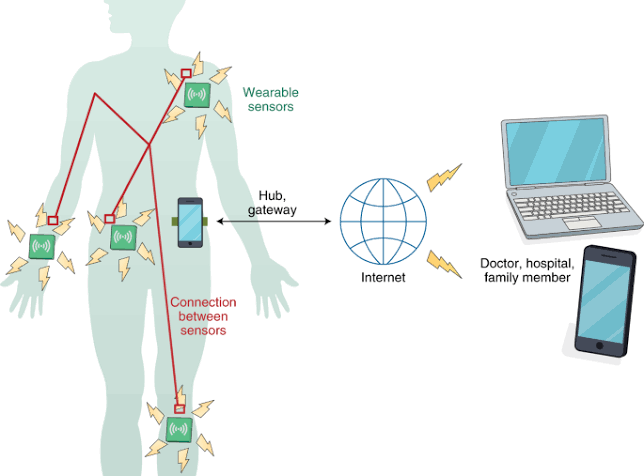Table of Contents
What are wearable devices?
Wearable devices are an effective tool used in the healthcare sector to monitor and assess patient health outcomes. These devices are worn in everyday articles like clothing and eyeglasses that the patient would tend to carry around or are embedded in the skin and synced with sensors in the patient’s environment.
These devices immediately better the possibilities of evaluating and improving the patient’s health, also reducing the cost of healthcare on an overall basis. Wearable devices are excellent tools that help monitor patient’s health and cater to varying needs.
What are the types?
- Accelerometer
- Gyroscopes
- Magnetometers
- Global Positioning System
- Heart rate sensors
- Pedometers
- Pressure sensors
Accelerometer
A particular sensor used in wearables, an accelerometer, offers specific measuring capabilities that help detect and collect precise patient data. A physically active user can access their running speed and even track their sleep pattern.
Gyroscopes
A commonly preferred wearable sensor, Gyroscopes, detect only angular accelerations. This sensor effectively tracks data with high precision, and the numerous types of data around gas cal and as well as mechanical.
Magnetometers
These sensors are most effective when synergised with accelerometers and gyroscopes. These sensors come with motion orientation.
Global Positioning System
It is almost a household term used for quantifying the desired location. GPS is a sensor used to locate the patient wearing the sensor. It notifies the administrator of the patient’s exact whereabouts.
Heart rate sensors
Photoplethysmography is a technique incorporated in this sensor to detect the volume of the blood flow using light. Fitness trackers function under the principle. The information/data collected is then transferred to calculate the pulse. The photodiode in the sensor alerts the healthcare provider when there is more light absorbed by the diode, which means abnormal pulse.
Read Also: How To Approach Cyber Incident Response And Cyber Digital Forensics In 2022
Pedometers
Generally found in wearable devices that help count the user’s steps while engaging in physical activity. There are two kinds, electrical and mechanical. Mechanical pedometers are more popular and depend on MEMS technology, increasing efficiency and functionality.
Pressure sensors
When pressure is applied to these sensors, the resistance is altered. This technique of detecting pressure change and the tracking of static and dynamic resistance changes is used in pressure sensors.
Wearables and the integration of sensors
The microcontroller is the key component of wearable devices, and is generally considered a small computer that helps integrate IoT with any desired application. Its primary advantage is that it eliminates the use of any electronic devices and executes functions with a single chip.
Reference links:


















